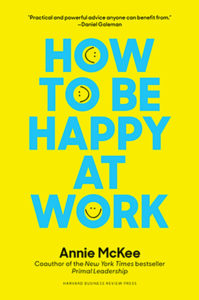Nikki Deskovich is the vice president of talent management and organizational effectiveness at Eaton Corporation, a global company that specializes in electrical, hydraulic, and mechanical power management solutions. As you might guess, the company’s culture is predictably focused on efficiency, details, and concrete, tangible results. What you might not guess, however, is that Eaton focuses diligently on talent management, and that its leaders take people development very seriously.
Nikki leads the group responsible for several talent development programs, including one for high potentials. She finds her job deeply satisfying—in part because she is able to see a link between a core, personal value and her daily activities.
Nikki hates waste. “I recycled long before it was popular, bought a hybrid car as soon as they came out, and I always try to be as efficient as possible so I don’t waste my own or other people’s time.” More than anything, though, Nikki hates to see human potential wasted. And she sees it as part of her job to help people open their eyes to who and what they can be, what they can do in their careers and for the company.
As part of her job, Nikki helps people make career choices that benefit them and the company too. This isn’t always easy. Sometimes, as was the case for one man Nikki coached. He was good at his job and the company was perfectly happy for him to remain in a role that he felt he’d outgrown. He was bored, sure, but had settled with staying put because, as Nikki explains, “He didn’t think he was cut out for something bigger, especially a leadership role.”
Some talent managers would have seen this as a win-win: The company was getting what it needed and the man was comfortable, even if the role that had become “just a job” to him. Nikki helped him see, however, that by choosing to plateau, he was shortchanging himself and that the company suffers in the long run when people’s talents are wasted. They spent a good deal of time working through the pluses and minuses of seeking a promotion. Through these conversations he came to understand that coming to work every day to just do the job wasn’t satisfying and that in fact he was becoming a bit demoralized. Ultimately he took the risk applied for—and got—a transfer to another division where he’d have the opportunity to move up and grow as a leader.
Nikki recently received an email from him with the happy news that he’d gotten yet another promotion and that he was truly happy with his new career. Prior to working with her, he told her, he’d never even considered a senior leadership role and hadn’t wanted to take the risk of shifting to an entirely new area of the business but she had opened his eyes to how meaningful work could be. He thanked her for seeing the potential in him, which profoundly affected him.
Nikki’s impact on this man came directly from her belief that no one should waste their time, their talents, or their lives. Finding ways to live this value at work helps her to fulfill her purpose and to experience work as a calling. Her story, like the stories of janitors, carpenters, and caregivers, shows us that you don’t have to be curing cancer to make a difference: you can do it one person at a time. Helping others is profoundly satisfying and meaningful to some, but there are other core values that you may express every day, at work as well as in your personal life.
Excerpted from How to Be Happy at Work by Annie McKee, Harvard Business Review Press (September 5, 2017)

Based on extensive research and decades of experience with leaders, How to Be Happy at Work deepens our understanding of what it means to be truly fulfilled and effective at work and provides clear, practical advice and instruction on how to get there―no matter what job you have.